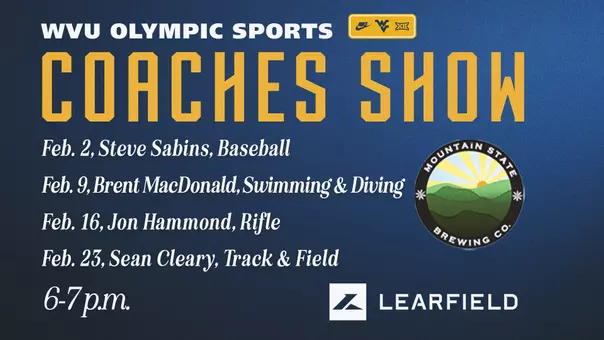On the Edge
August 11, 2005 11:23 AM | General
August 11, 2005
MORGANTOWN, W.Va. – Johnny Dingle may be able to provide West Virginia with something it really hasn’t had in years: a legitimate edge pass rusher.
 |
||
| Sophomore Johnny Dingle was the Dade County defensive player of the year in 2002.
All-Pro Photography/Dale Sparks |
Dingle, a 6-foot-3-inch, 250-pound sophomore from Miami, arrived in Morgantown last winter after transferring from Florida. Dingle was one of the top pass rushers in the Sunshine State as a senior at Booker T. Washington High School, earning class 4A all-state honors.
Dingle made 22 sacks and 89 tackles for Coach Jerry Hughes, a former assistant on Don Nehlen’s staff at WVU in the early 1990s, and he was named the Dade County defensive player of the year. Dingle entertained many college offers but his mind was always set on going to Florida.
“I went and took all of my visits just to enjoy my visits,” he said.
Dingle arrived in camp in 2003 looking to crack the Gator’s two-deep. He says he worked with the twos all through camp and was prepared to dress for the season opener that year. But NCAA Clearinghouse questions forced Florida to pull him off the field.
“It was a late thing and I don’t know what happened,” Dingle said. “Coach told me I had to sit the first game. I was with the twos the whole time I was there. They were lacking speed rushers and they only had two of them and I was the third one.
“I waited until the end of the season and decided to leave,” he said.
Dingle says it was a tough decision but he made it because he was anxious to finally get out on the field.
“The clock was ticking on my college career,” he said. “I couldn’t waste anymore time not doing what I love to do so I had to move on to play football.”
Dingle’s decision to leave Gainesville may have been difficult, but his spirits picked up when the phone started ringing off the hook again.
He narrowed his choices to LSU, Nebraska and West Virginia and took visits to all three schools. West Virginia coach Rich Rodriguez tried in vain to persuade Dingle to come to Morgantown when he was still in high school, but this time around Dingle was more receptive.
“Coach Magee and Coach Rod were recruiting me heavy,” he said. “My coach told me West Virginia was looking for a pass rusher and Coach Magee and Coach Rod were like, we need one because we do a lot of things on defense.”
Dingle’s adjustment to the northern climate has been a gradual one.
“It was kind of slow for me at first but I’ve got great teammates and great coaches and I was able to blend in,” he said.
Dingle admits he’s already learned a lot from Coach Bill Kirelawich and realizes there is a lot more he can still learn.
“He’s a great coach and he keeps your motor going,” Dingle said. “He keeps you excited and laughing and at the same time it’s all about business: Do your job, he does his job and then the day is over.”
Dingle’s presence on the edge gives the Mountaineers a speed rusher it really hasn’t had since Gary Stills played here in 1998. Dingle says he is still shaking off the rust.
“I’m getting back into things; I sat out for two years,” he said. “Spring ball I got myself back together and it takes time to get yourself back to normal.”
Rodriguez says he’s been pleased with Dingle’s progress so far.
“I think he’s doing pretty well. He’s in great shape; Johnny had a really good summer,” said the coach. “I still think that we have to realize that he’s a first-year player. He’s still learning techniques and he’s still learning the finer points and the things that Coach Kirelav is trying to teach him. But he’s really hungry to play.”
Right now the biggest obstacle for Dingle, according to Rodriguez, is locking up with 325-pound offensive tackles and handling the run.
“Our guys are doing some things with their defense that he’s got to play big, too,” Rodriguez said. “He’s only 250 pounds but he’s got to play bigger than that a lot of times.”
“Coach Kirlav keeps drilling me on the run,” Dingle added. “That’s what he’s screaming about and I’m getting better at it. It’s something I’ll get better at as the season comes.”
For now, Dingle is happy he’s about to make his college debut … two years later.
“At first I thought it would take forever but now I’m here,” he said. “There are 24 more days until my first game. I count ‘em down every day.”
Briefly:
“I think they’ll start being a little faster,” Rodriguez said.
The coach plans on showing his young team some NFL tape on how to practice without full gear. The coach has been frustrated with his team’s inability to properly adhere to what he refers to as their “tag” and “thud” methods, meaning no players are to be on the ground.
“I guess we’ve got to educate them,” he said.
“(Thursday) will be the best day for us to evaluate some of our newcomers,” said Rodriguez. “We’ll also see if any of our upperclassmen have gotten better over the summer.”
The coach also noted that senior Phil Brady is punting better than he ever has.
“Every punt he had during punt period was outstanding,” said Rodriguez. “Scott Kozlowski punted well, too.”
Rodriguez believes senior Brandon Myles has been the most consistent player of the group, but he was limited a little on Wednesday due to soreness.
The coach is still hoping a pair of redshirt freshmen Dorrell Jalloh and Tito Gonzales can pick it up and become factors in the passing game. “Both of them had their best practices with us so far on Wednesday,” said Rodriguez.
“We had one guy quit a couple of years ago that actually got out of the car at the hotel, started to check in and then caught a bus back (home) because his dad wouldn’t give him a ride back,” Rodriguez recalled. “That was a pretty quick one but this one ranks second.”
“Heck, we give them water all day – we give them water before the meetings. We even given them popsicles during the break, can you imagine that?” he laughed. “Everybody thinks I mean. I give them popsicles halfway through practice.”
Rodriguez says there were no popsicles given out when he was a WVU player in the early 1980s.
“When I had Bill McConnell coaching me and he wouldn’t even let us drink water,” Rodriguez recalled. “Of course the older you get the harder it was.”















